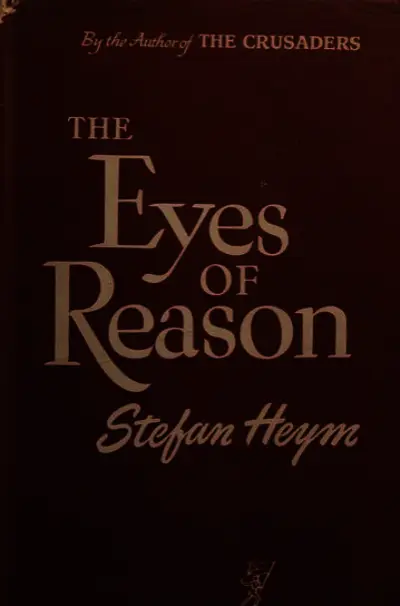
If you look up Czechoslovakia in Wikipedia you’ll read that the Communists “seized power” in 1948. That phrase suggests a violent upheaval or at best some anti-democratic action. The actual course of post-war change in this small central European country is the background to Stefan Heym’s 1952 novel. He tells the story through the lives of three brothers, whose late father was the owner of a glass works that dominates the fictional town of Rodnik in the Sudeten hills.
Joseph, the eldest brother, spent the war in the RAF, and has inherited the family business. Karel, a medical doctor, worked with the resistance, and was sent to a Nazi concentration camp. Thomas, a writer, was in the USA earning areputation as the “Spokesman” of his occupied nation.
In the first post-war election the Communists win the most votes and their leader Klement Gottwald becomes Prime Minister. He forms a coalition with the other three parties (Social Democrats, Liberals and Conservatives) to implement a progressive but not socialist programme that includes the nationalisation of some capitalist firms.
Joseph’s factory is nationalised but he persuades the minister (from one of the two bourgeois parties) to appoint him its administrator. He yearns to own the business again, so he joins the minister’s party and is elected as one of the MPs for the district covering Rodnik. Thomas has reluctantly voted for him though he despises the way Joseph uses the family’s reputation to win support.
Karel has voted for the Communist, who, under the PR system, is also elected. Karel has become close to Kravat, the party leader in the factory, who wants him to become the works doctor. Karel asks how he will be appointed and Kravat says it will be arranged by the union, the Works Council, all of us… the people.
Thomas writes his magnum opus An Essay on Liberty but his liberal views are acceptable to neither Right nor Left so he fails to find a publisher.
As an MP Joseph is involved in the plot by the two bourgeois parties to bring down the coalition government. When the Communist Minister of the Interior dismisses several senior police officers for alleged disloyalty, twelve right-wing ministers resign. The Communists call massive popular demonstrations to demand that President Benes accepts the resignations and reconstructs the government. Action committees are elected in workplaces and communities. A general strike is threatened. The President reluctantly gives in. That was the Communist seizure of power.
Joseph’s ministerial friend hijacks an aircraft on a local flight and Joseph flies it to Munich, leaving his country for a second time, never to return. Thomas, unable to identify with either side, commits suicide. Karel becomes the works doctor.
This is a bare summary of a book that is rich in character development and significant incidents, through which Heym weaves the personal and the political into a convincing unity.